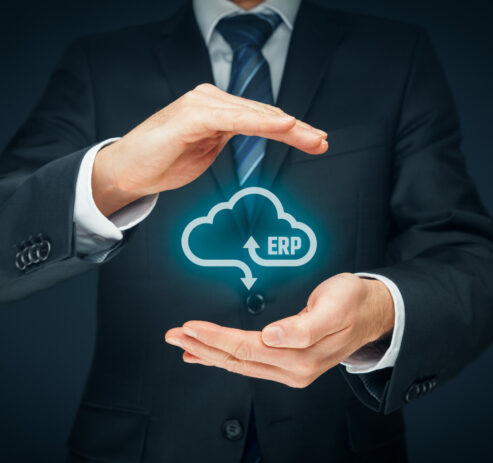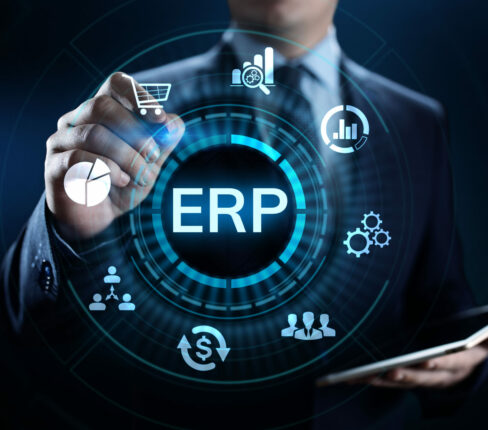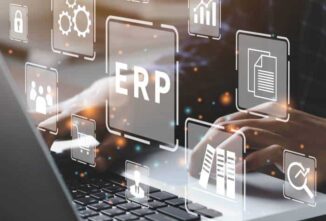How AI-Integrated ERP Systems Optimize Efficiency and Decision-Making
Enterprise resource planning (ERP) systems are powerful business tools that help organizations streamline various operations for increased productivity and efficiency. An ERP consolidates data from multiple sources and creates a single source of truth that is updated in real-time, eliminating human errors, duplications, and incomplete information. In addition, An ERP system enables stakeholders to make informed decisions by generating valuable insights and forecasts.
ERP tools help streamline and automate various business processes, such as inventory management, sales and marketing, Human Resources and payroll, customer relations, and more. However, despite technological advances, many legacy ERP tools require significant human intervention and are prone to inaccuracies.
The emergence of Artificial Intelligence (AI) significantly transformed the ERP market, enabling larger businesses using AI-powered ERP to automate their processes, gain better insights through smarter analytics, and improve financial planning. Unlike traditional ERP systems that struggle with incomplete data, AI-driven technologies can automatically fill in the gaps and provide recommendations for various operational activities such as inventory management, demand forecasting, sales performance, and production planning.
Use Cases of AI In ERP
Forecasting and Demand Planning
AI-integrated ERP tools harness Big Data to generate actionable insights and reports. AI-enabled ERP systems leverage natural language processing and predictive analytics to provide easily understandable insights, aiding in creating visualizations and summarizing data. In addition, it also helps streamline different operations planning and collaborative work. AI enables demand planning and preparation through predictive and prescriptive analytics.
Customer Relationship Management
AI can help provide better customer support with the help of conversational AI bots and advanced marketing tools like Apple’s Siri or Google’s digital assistant. They can aid in retrieving historical data and analyzing customer interactions to customize responses and provide accurate solutions that resonate with the customers’ needs. In addition, CRM teams can access identified historical data and customer interactions to deliver omnichannel customer support. AI dramatically enhances the quality and efficiency of ERP customer relationship management, leading to better customer satisfaction (CSAT) and customer experience scores.
Streamlining Supply Chain Operations
AI-powered ERP tools offer advanced capabilities that help businesses manage and streamline supply chain related processes like inventory management, order processing, and stock replenishment. AI-powered ERP solutions enable companies to move and store products and items across different warehouses efficiently, forecast future orders, and automatically submit purchase orders to replenish the stock.
AI-powered ERP tools ensure efficient and timely order processing and minimize supply chain bottlenecks by coordinating with third-party vendors, suppliers, shipping and logistics, and warehouse teams.
Automating Financial Processes
AI-powered financial planning incorporates business intelligence and budget analysis for exceptional accuracy. The technology utilizes predictive analytics and advanced algorithms to identify the most effective ways to reduce expenses and track checks and balances. By automating multiple financial processes, AI-driven ERP reduces the need for manual accounting, eliminates human errors, and minimizes the possibility of financial fraud. This means organizations can depend less on human accountants, who may be prone to making errors or even engaging in financial malpractices.
Optimizing Warehouse Management
Managing warehouse staff, tracking arrivals, and efficiently storing and moving items to their final destinations is made easy and error-free with the help of AI-enabled ERP tools. AI-integrated ERP solutions can automatically optimize and submit raw materials requests from vendors, manage payment requests, identify optimal storage locations, and assist workers in efficiently picking items, resulting in operational efficiency and faster order processing.
Will AI Eventually Replace ERP?
Although believing that AI will completely replace traditional ERP systems may be tempting, it is unlikely in the foreseeable future. While ERP with AI will be more commonplace, human intervention is still essential, and given the various challenges posed by AI technologies, it is always necessary to use AI technologies as a tool that complements human efforts rather than as a replacement. In other words, AI-enabled processes will assist rather than replace traditional ERP systems with a human touch.
















